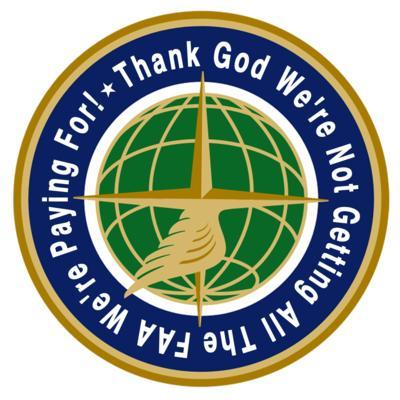'Covers Commercial and Public-Interest Needs, but Largely Misses Recreational Flying'
The FAA late Wednesday issued a Special Federal Aviation Regulation (SFAR) to address problems stemming from the COVID-19 pandemic, including aircraft and airman certification issues across the spectrum of aviation. The agency's 93-page SFAR primarily addressed commercial and public interest operations, and those deemed to be essential activities.

"We appreciate the FAA's attention to this matter, as EAA had supported several of the provisions included in the SFAR," said Sean Elliott, EAA's vice president of advocacy and safety. "Much of the special rule focused primarily on commercial and public interest needs and it is important for our members to understand what that means. Other than the extension of some expiring medical certificates, most GA pilots not engaged in essential flight activity or pursuing a new certificate/rating will not be eligible for these provisions of relief. We continue to review this SFAR regarding the ramifications for GA pilots and aircraft, and will work with the agency to address areas that are adversely impacting EAA members."
Medical certificates that expired on March 31 or later are extended to June 30, regardless of the kind of operation in which the pilot is engaged. This provides relief to third-class medical certificate holders and higher, who would otherwise not be able to make appointments with an Aviation Medical Examiner at this time. The medical relief included in the SFAR codifies the previous FAA approach using a non-enforcement policy and should address many insurance and liability-related concerns.
In addition, written test requirements, 61.58 and 61.55 multi-crew proficiency checks, and flight engineer medical extensions, among others, are necessary concessions that will provide needed relief for pilots engaged in commercial and essential operations.

Wholesale extension of flight reviews and proficiency checks only applies to operations requiring a commercial certificate or higher. Extension of flight reviews for private pilots is limited to those with a total time of 500 hours, with 400 hours as PIC, and having logged 50 hours PIC in the last 12 months, and only for flight in support of a business, for humanitarian relief operations, for family medical needs or transportation of essential supplies for personal use, or to reposition the aircraft for required inspections. There are also limited allowances for medical flights under exemptions and private agricultural flights. The FAA has offered no relief from aircraft maintenance or inspection intervals, such as annual inspections.
Due to the limited nature of many of the SFAR's provisions, some recreational pilots and aircraft will be unable to legally fly, due to an inability to obtain annual inspections and flight reviews. That ability varies widely from state to state, as each state has differing public distancing and business operation guidelines that affect the availability of services. EAA is also actively working with the FAA on broad policy relief to allow experimental aircraft to be relocated after the expiration of their annual condition inspection for the purpose of maintenance and inspection.
"This SFAR is welcome relief for operations deemed essential in support of commercial and public health-related services, but does not go very far in aiding the safety, proficiency, and continued operation of personal and recreational aviation," Elliott said. "It is well understood through FAA and industry combined analysis that maintaining currency and proficiency is the surest way of achieving aviation safety. Inactivity for GA pilots, regardless of the type of operation, is a detriment to the hard-fought safety efforts and improvements achieved in recent years."
 ANN's Daily Aero-Term (04.28.24): Airport Marking Aids
ANN's Daily Aero-Term (04.28.24): Airport Marking Aids Aero-News: Quote of the Day (04.28.24)
Aero-News: Quote of the Day (04.28.24) ANN's Daily Aero-Linx (04.28.24)
ANN's Daily Aero-Linx (04.28.24) Aero-News: Quote of the Day (04.29.24)
Aero-News: Quote of the Day (04.29.24) ANN's Daily Aero-Linx (04.29.24)
ANN's Daily Aero-Linx (04.29.24)




